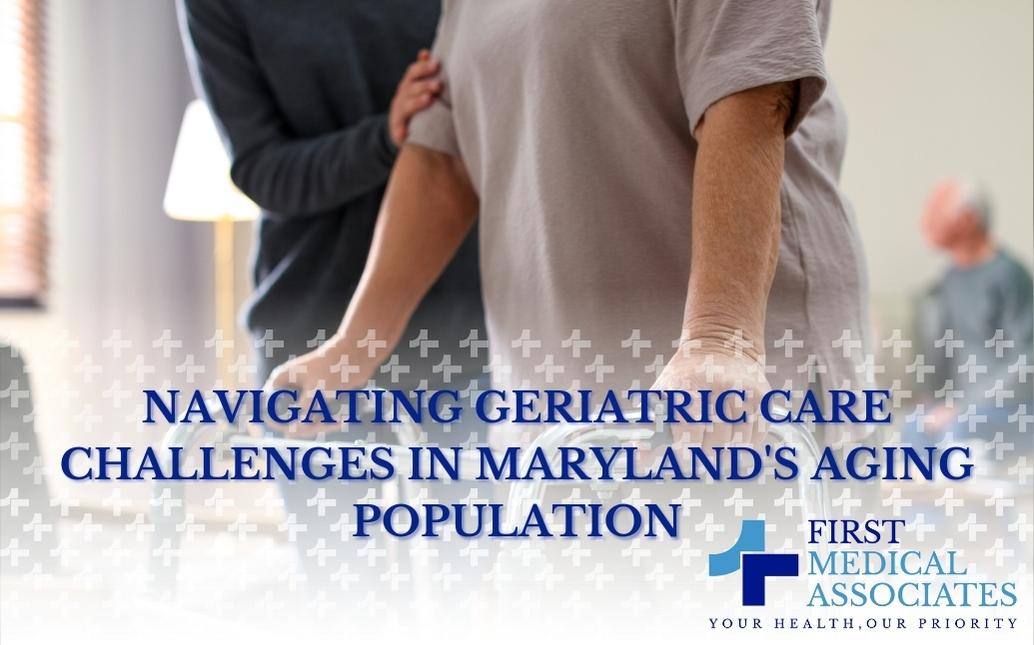Navigating Geriatric Care Challenges in Maryland’s Aging Population
As Maryland’s population continues to age, the challenges associated with providing quality geriatric care have become increasingly significant. The best geriatric doctors in Gaithersburg, MD, understand the needs and healthcare requirements of older adults and are at the forefront of providing a comprehensive approach to navigating the complex landscape of geriatric care services. At First Medical Associates, we explore the key challenges faced by Maryland’s aging population and provide insights into how to navigate them effectively.
Understanding Maryland’s Aging Population
Maryland, like many other states in the United States, is experiencing a demographic shift with a rapidly growing aging population. According to data from the U.S. Census Bureau, the number of individuals aged 65 and older in Maryland is expected to increase substantially in the coming years. This shift presents both opportunities and challenges for healthcare providers, policymakers, and families.
Challenges in Geriatric Care
Access to Quality Care:
-
Maryland’s aging population faces a significant hurdle in accessing high-quality geriatric care services. With many older adults dealing with complex medical conditions that demand specialized care, the scarcity of healthcare providers well-versed in geriatrics compounds the problem. Furthermore, geographic disparities further strain access, particularly for those residing in rural areas. To tackle this challenge effectively, the best geriatric doctors in Rockville, MD, are investing in workforce development programs that equip healthcare professionals with geriatric care expertise. Additionally, expanding access to specialized clinics and services, particularly in underserved regions, can help bridge the gap.
Care Coordination:
-
Geriatric care frequently involves multiple healthcare providers, such as primary care physicians, specialists, and caregivers. Coordinating care among these entities can be intricate, often leading to fragmented and suboptimal care. Issues like medication errors, redundant tests, and inadequate communication among healthcare professionals can arise. To enhance care coordination, enlisting the support of geriatric care managers or social workers can be invaluable. The top family physicians in Joppa, MD, act as advocates for older adults, ensuring that all aspects of their care are harmoniously orchestrated. Furthermore, leveraging electronic health records and telehealth technologies can significantly improve communication and collaboration among healthcare providers.
Long-Term Care Options:
- A substantial number of older adults in Maryland require long-term care services, ranging from nursing homes and assisted living facilities to in-home care. The top family physicians in Rockville, MD, are working to identify affordable and suitable long-term care options. They understand it can be challenging, and the financial burden it poses on families can be overwhelming. To alleviate this challenge, it is crucial to explore long-term care insurance options, Medicaid eligibility, and available government programs tailored for seniors. Additionally, considering alternative care arrangements such as home- and community-based services can offer more personalized and cost-effective solutions.
Mental Health and Isolation:
- Social isolation and mental health concerns are prevalent among older adults, especially those who live alone or in long-term care facilities. The advent of the COVID-19 pandemic has further exacerbated these challenges. Loneliness and depression can take a severe toll on an older person’s overall well-being and quality of life. The best geriatric doctor in Joppa, MD, addresses this issue by focusing on mental health support and social engagement for older adults. Initiatives like senior centers, support groups, and virtual communication programs can play a vital role in combating isolation and enhancing mental well-being.
Navigating the challenges of geriatric care in Maryland’s aging population requires a multi-faceted approach that encompasses access to quality care, care coordination, long-term care planning, and mental health support. At First Medical Associates, we believe it’s essential for healthcare providers, policymakers, and families to work together to ensure that older adults receive the comprehensive and compassionate care they deserve. By addressing these challenges proactively, we can create a more supportive and sustainable healthcare system for its aging population.

